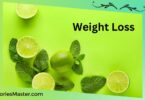Eating the right foods before hitting the gym is crucial to ensure that you have the energy and stamina to power through your workout. But with so many options out there, it can be difficult to know what to eat and when to eat it.
In this article, we will provide you with the information you need to make informed choices about your pre-gym meals.
Understanding your body’s needs is key to selecting the right foods for your pre-workout meal. Depending on the type of workout you plan to do, your body may require different nutrients to perform optimally.
For example, if you plan to do a high-intensity workout, your body will need more carbohydrates to provide the energy it needs to sustain the workout. On the other hand, if you plan to do a strength-training workout, your body will require more protein to help build and repair muscle tissue.
Now that you understand your body’s needs, let’s take a closer look at the types of workouts and the corresponding meals that are best suited for each.
From there, we will explore the ideal pre-gym foods, the importance of hydration, when to eat before the gym, and the foods to avoid before the gym. By the end of this article, you will have all the information you need to make the best choices for your pre-gym meals.
Key Takeaways
- Understanding your body’s needs is crucial to selecting the right foods for your pre-workout meal.
- Different types of workouts require different nutrients to perform optimally.
- The ideal pre-gym meal should be a balance of carbohydrates and protein, consumed 30 minutes to an hour before the workout.
Understanding Your Body’s Needs
Before hitting the gym, it’s important to understand what your body needs to perform at its best. Proper nutrition can help you achieve your fitness goals and improve your overall health. Here are some key factors to consider:
Importance of Macronutrients
Macronutrients are the nutrients that provide energy to your body. They include carbohydrates, protein, and fat. Each macronutrient plays a different role in your body and has its own unique benefits.
Carbohydrates are the primary source of energy for your body during exercise. They provide quick energy and are essential for high-intensity workouts. Good sources of carbohydrates include whole grains, fruits, and vegetables.
Protein is important for building and repairing muscle tissue. Consuming protein before a workout can help reduce muscle damage and improve recovery time. Good sources of protein include lean meats, eggs, and dairy products.
Fat is also an important source of energy, especially during low-intensity exercise. Good sources of healthy fats include nuts, seeds, and fatty fish.
Importance of Micronutrients
Micronutrients are the vitamins and minerals that your body needs in smaller amounts. They play a crucial role in maintaining overall health and supporting bodily functions. Here are some key micronutrients to consider:
Vitamin B12 is important for energy production and can help reduce fatigue during exercise. Good sources include meat, fish, and dairy products.
Iron is essential for transporting oxygen throughout your body. Low iron levels can lead to fatigue and decreased performance. Good sources of iron include red meat, spinach, and lentils.
Calcium is important for bone health and muscle function. Good sources include dairy products, leafy greens, and fortified foods.
In conclusion, understanding your body’s nutritional needs is essential for achieving your fitness goals. By consuming the right macronutrients and micronutrients, you can improve your performance and overall health.
Types of Workouts and Corresponding Meals
When it comes to working out, your body needs fuel to perform at its best. The type of workout you’re doing can affect what you should eat beforehand. Here are some meal ideas for different types of workouts:
Strength Training
Strength training requires energy and nutrients to help build and repair muscle tissue. Eating a balance of protein and carbohydrates can help provide the necessary fuel for your workout and help with muscle recovery afterward. Some meal options include:
- Grilled chicken breast with sweet potato and steamed broccoli
- Brown rice with black beans, avocado, and salsa
- Greek yogurt with mixed berries and granola
Cardiovascular Training
Cardiovascular training, such as running or cycling, requires a lot of energy. Eating easily digestible carbohydrates can help provide the necessary fuel for your workout. Some meal options include:
- Banana with peanut butter
- Oatmeal with banana and honey
- Whole grain toast with jam
High-Intensity Interval Training
High-intensity interval Training (HIIT) requires short bursts of intense exercise followed by periods of rest. Eating a balance of carbohydrates and protein can help provide the necessary energy for your workout. Some meal options include:
- Whole grain wrap with turkey, lettuce, tomato, and hummus
- Quinoa salad with grilled chicken, mixed vegetables, and balsamic vinaigrette
- Smoothie with banana, spinach, Greek yogurt, and almond milk
Remember to drink plenty of water before and during your workout to stay hydrated. Eating a meal 1-2 hours before your workout can help provide the necessary fuel for your body without causing discomfort during exercise.
Ideal Pre-Gym Foods
When it comes to working out, what you eat before hitting the gym can make a significant difference in your energy levels, performance, and recovery.
The ideal pre-gym meal or snack should be rich in protein and carbohydrates, with a moderate amount of healthy fats. Here are some of the best foods to eat before a workout:
Protein-Rich Foods
Protein is essential for building and repairing muscles, which makes it a crucial nutrient to consume before a workout. Some of the best protein-rich foods to eat before hitting the gym include:
- Greek yogurt
- Cottage cheese
- Hard-boiled eggs
- Chicken breast
- Tuna or salmon
- Protein shakes or bars
Carb-Rich Foods
Carbohydrates are the primary source of energy for the body, making them an essential nutrient to consume before a workout. However, not all carbs are created equal, and it’s crucial to choose complex carbohydrates that provide sustained energy. Some of the best carb-rich foods to eat before hitting the gym include:
- Oatmeal
- Brown rice
- Sweet potatoes
- Whole-grain bread or crackers
- Fruits like bananas, apples, or berries
Healthy Fats
While carbohydrates and protein are the main macronutrients needed before a workout, healthy fats can also provide a source of sustained energy and help with nutrient absorption. Some of the best healthy fats to consume before hitting the gym include:
- Avocado
- Nuts and seeds
- Nut butter
- Olive oil
- Coconut oil
In conclusion, the ideal pre-gym meal or snack should be rich in protein and carbohydrates, with a moderate amount of healthy fats. By choosing the right foods, you can fuel your body for optimal performance and recovery.
Hydration and Its Importance
Staying hydrated is crucial when it comes to working out. Water is essential for regulating body temperature, lubricating joints, and transporting nutrients throughout the body.
Dehydration can lead to fatigue, dizziness, and even heat stroke, so it’s important to drink enough fluids before, during, and after your workout.
The amount of water you need to drink depends on your body weight, the intensity of your workout, and the climate you’re exercising. A good rule of thumb is to drink at least 500ml of water two to three hours before your workout, and then sip on water throughout your session.
While water is an excellent choice for hydration, you can also consume other fluids such as juice, milk, or sports drinks. Sports drinks can be particularly useful for intense workouts lasting longer than an hour, as they contain electrolytes that help to replace the sodium, potassium, and magnesium lost through sweat.
It’s also important to note that thirst is not always a reliable indicator of dehydration. By the time you feel thirsty, your body may already be dehydrated. To ensure you’re properly hydrated, check the color of your urine. If it’s pale yellow or clear, you’re well hydrated. If it’s dark yellow or amber, you need to drink more fluids.
In summary, staying hydrated is essential for optimal performance during your workout. Drink plenty of fluids before, during, and after your session, and pay attention to the color of your urine to ensure you’re properly hydrated.
When to Eat Before Gym?
Eating the right foods before a workout provides you with the energy and nutrients you need to perform at your best.
However, timing is also crucial to ensure that your body has enough time to digest the food and avoid any discomfort during exercise.
1. Timing
Ideally, you should eat a meal containing both carbohydrates and protein two to three hours before your workout. This will give your body enough time to digest the food and convert it into energy.
However, if you don’t have that much time, you can eat a smaller meal or snack one hour before your workout.
2. Snacks
If you’re short on time or don’t want to eat a full meal before your workout, you can opt for a small snack.
Choose something that’s easy to digest and provides you with the energy you need, such as a banana, a handful of nuts or a protein bar. It’s best to eat your snack 30 minutes to an hour before your workout.
3. Hydration
Don’t forget to hydrate before your workout. Drinking water before exercise helps to prevent dehydration, which can lead to fatigue and decreased performance. Aim to drink at least 500ml of water two hours before your workout and another 250ml 30 minutes before.
4. Individual Differences
Remember that everyone’s digestion and metabolism are different, so it’s important to experiment and find out what works best for you.
Some people may feel uncomfortable exercising on a full stomach, while others may need a larger meal to feel energised. Listen to your body and adjust your pre-workout meal accordingly.
Foods to Avoid Before Gym
When it comes to working out, the food you eat before hitting the gym can have a significant impact on your performance. Here are some foods to avoid before a workout:
1. High-Fat Foods
Foods that are high in fat, such as fried foods, pizza, and burgers, take longer to digest and can leave you feeling sluggish during your workout. It’s best to avoid these types of foods before hitting the gym.
2. High-Fibre Foods
Foods that are high in fibre, such as beans, lentils, and broccoli, can cause bloating and discomfort during a workout. It’s best to avoid these types of foods before hitting the gym.
3. Sugary Foods
Foods that are high in sugar, such as candy, soda, and pastries, can cause a spike in blood sugar levels, followed by a crash. This can leave you feeling tired and fatigued during your workout. It’s best to avoid these types of foods before hitting the gym.
4. Dairy Products
Dairy products, such as milk and cheese, can be difficult to digest and can cause discomfort during a workout. It’s best to avoid these types of foods before hitting the gym.
5. Alcohol
Alcohol can dehydrate you and affect your balance and coordination, making it dangerous to exercise after drinking. It’s best to avoid alcohol before hitting the gym.
In conclusion, it’s important to choose the right foods before a workout to ensure that you have the energy and stamina to perform at your best. Avoiding high-fat, high-fibre, sugary, and dairy products, as well as alcohol, can help you achieve your fitness goals.
Conclusion
In conclusion, what you eat before a gym session can have a significant impact on your performance and recovery. It’s essential to fuel your body with the right nutrients to ensure you get the most out of your workout.
As mentioned in the search results, eating a healthy, well-considered meal 1-2 hours before exercise can provide your body with the energy it needs to power through the session. Pairing carbohydrates with protein can help improve performance and recovery.
Timing of the pre-exercise meal has minimal effects when consumed 15, 45, or 75 minutes before exercise. However, carbohydrates ingested 30 minutes before exercise resulted in better performance than 120 minutes before exercise.
It’s also important to stay hydrated before and during exercise. Drinking water or sports drinks can help replace the fluids lost through sweat and prevent dehydration.
In addition to eating before exercise, it’s also crucial to refuel your body after a workout. Consuming a healthy, well-considered meal within 1-2 hours after exercise can help your body recover and repair muscle tissue.
Overall, paying attention to your nutrition basics and ensuring you get enough vitamins, minerals, and other nutrients can help improve your health and performance. With the right fuel, you can achieve your fitness goals and make the most out of your gym sessions.









